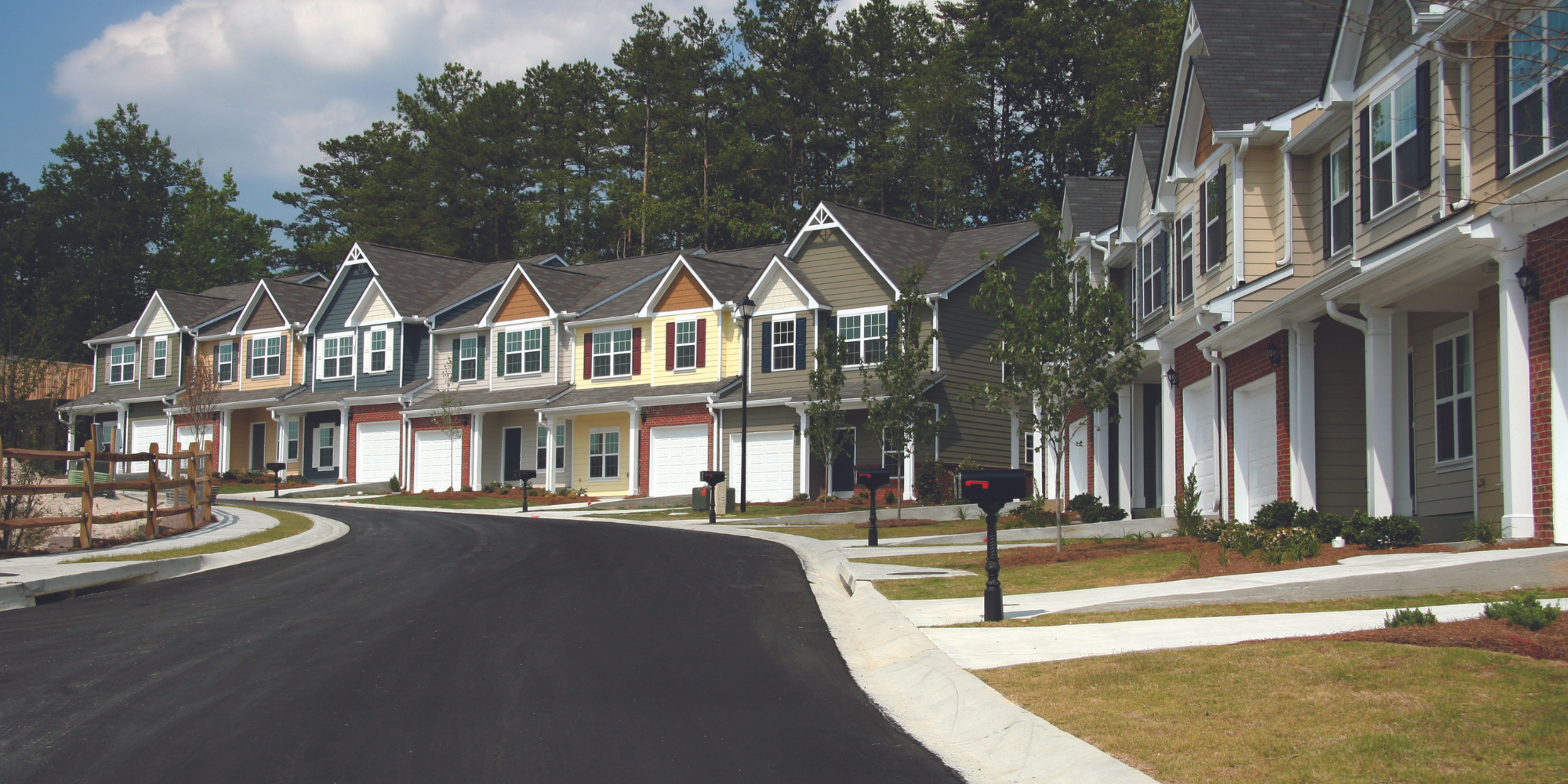In the Community
Experts Examine the Affordable Housing Crisis in Hampton Roads
Discover the state of affordable housing and its impact on our region and learn about innovative solutions to address the crisis.

With rising rent and housing costs and the end of pandemic eviction protections, finding affordable housing is increasingly becoming a challenge.
The Hampton Roads Community Foundation held a virtual forum on Nov. 9 to look at the state of affordable housing in the region and strategies to address the issue.
“Housing problems can be tough for some folks to grasp,” said speaker Jonathan Knopf, executive director for programs, Housing Forward Virginia, a nonpartisan think tank that researches best practices to increase housing affordability. “In fact, a lot of people don’t often think about housing beyond their own front door.”
However, the issue of affordable, available, and safe housing is important to understand and address because “everybody needs housing that they can afford,” Knopf said. “It’s not just very low-income people. It’s you, me, everybody.”
The Foundation sponsored the free, public forum as part of the Understanding Hampton Roads Series to advance civic engagement and bring people together to help improve life in our region.
“Communities cannot thrive without safe and affordable housing,” said Foundation President and CEO Deborah M. DiCroce. “Philanthropy has the power to make an impact.”
Knopf was joined by panelists Shernita Bethea, housing administrator for the Hampton Roads Planning District Commission, and Steve Lawson, chairman of Lawson, who has experience building affordable housing.
Andrew M. Friedman, principal, Progressive Housing Solutions LLC, moderated. Friedman formerly led the City of Virginia Beach Department of Housing and Neighborhood Preservation.
Housing is considered affordable when monthly housing costs, including mortgage or rent plus basic utilities, do not exceed 30 percent of a household’s gross income, Knopf said.
In the community, affordability means taking into account how well do housing prices match household incomes across a region, he said. What neighborhoods and homes are out of reach for some families? Can people afford to live where they work?
“Trying to find an apartment is harder than ever and more expensive than ever,” he said.
“Growing demand from people of all ages and all incomes has put pressure on a limited supply,” Knopf explained. “We’ve been under-building housing, both for sale and for rent, for decades now, and we’re still struggling with those consequences.”
First-time homebuyers are finding fewer affordable starter homes to choose from as demand has ballooned, Knopf said.
Racist policies and practices from the past, such as redlining, financial discrimination, and predatory lending, continue to have effects, resulting in a wide home ownership gap between Black and white households, he said.
“It’s very important to remember that inequities and disparities didn’t just happen,” Knopf said. “They were the direct results of racist decisions and policies that we live with today.”
Another factor is that public assistance programs to help people with low incomes are reaching only a small fraction of those who are eligible, Knopf said.
Housing instability affects both young and old, Knopf said. Retirees who want to downsize are finding limited options and will have to pay more to move into low-maintenance condos or apartments, or age in place in homes that may not have been built with accessibility in mind, he said.
As for children, he said, “can you imagine focusing on your homework or trying to make friends when you have no home of your own, or your parents said that you might not have a home tomorrow?”
It’s not too complex to figure out solutions to make affordable housing — and to make housing affordable, Knopf said. These solutions include reforms to make zoning more inclusive, project-based and tenant-based rental assistance, subsidies, tax credits, nonprofit development, rent restrictions, increased minimum wages, homebuyer grants, and rehabilitation assistance.
Knopf also offered some suggestions to help people talk about housing, which can be difficult: talk about benefits for all, focus on system challenges rather personal decision-making, and discuss clear remedies.
Bethea said the Hampton Roads Planning District Commission is looking to create the first housing assessment and gap analysis for the entire region.
“What this will encompass is looking at ways that we can collaborate together, taking a full snapshot of all the services and programs that we have for our consumers and residents,” she said.
Improving housing will require the involvement of people from many sectors beyond the housing industry, Bethea said, including nonprofits, hospitals, schools, and economic development partners
“Our biggest priority right now is making sure that we have the right people around the table and that we are not doing the types of planning that we have in the past in a vacuum,” Bethea said.
Lawson said “single-family zoning has been the default” for many municipalities for decades, an exclusionary practice that favors higher-priced single homes. More affordable housing can be created by rethinking zoning and land-use policies, he said.
“What we need is more housing of all types, and especially affordable housing, and close to jobs as well,” he said. “We need a new paradigm around housing.”
So, what can individuals do on their own when it comes to the issue of affordable housing?
“Be a good neighbor,” Knopf said. “Don’t be afraid of new housing that you may hear about happening in your neighborhood or nearby.”
Bethea encouraged people to seek credible sources of information and learn about what their localities are doing to address affordable housing. She also said people can talk to their employers to find out about housing incentives they may provide, for example, offering down payment and closing costs.
“We are going to have to look at creative ways of securing housing in our region and creative ways of housing each other that haven’t been traditional,” she said.


